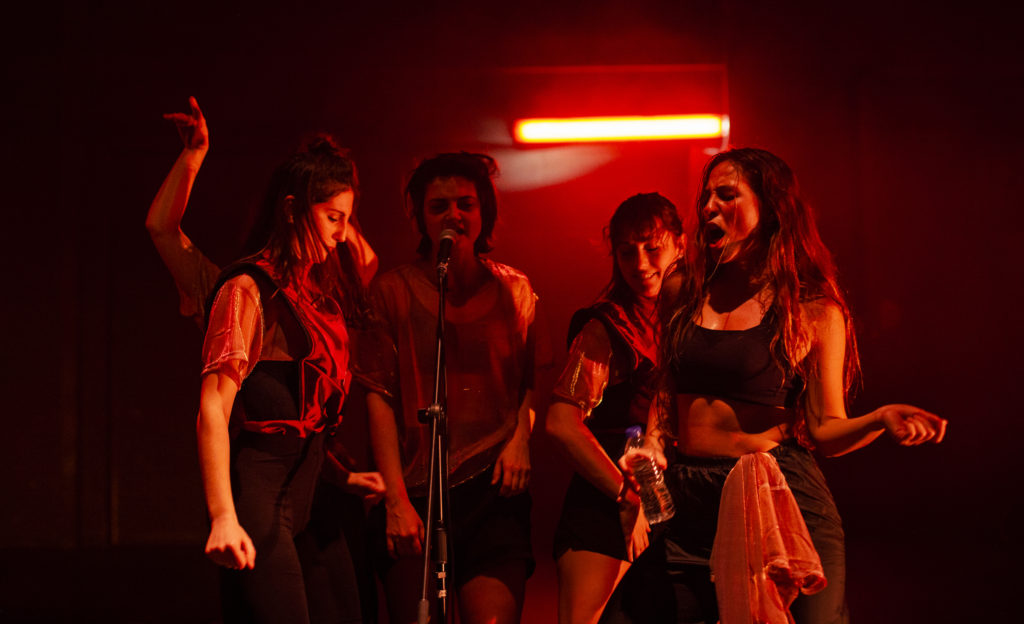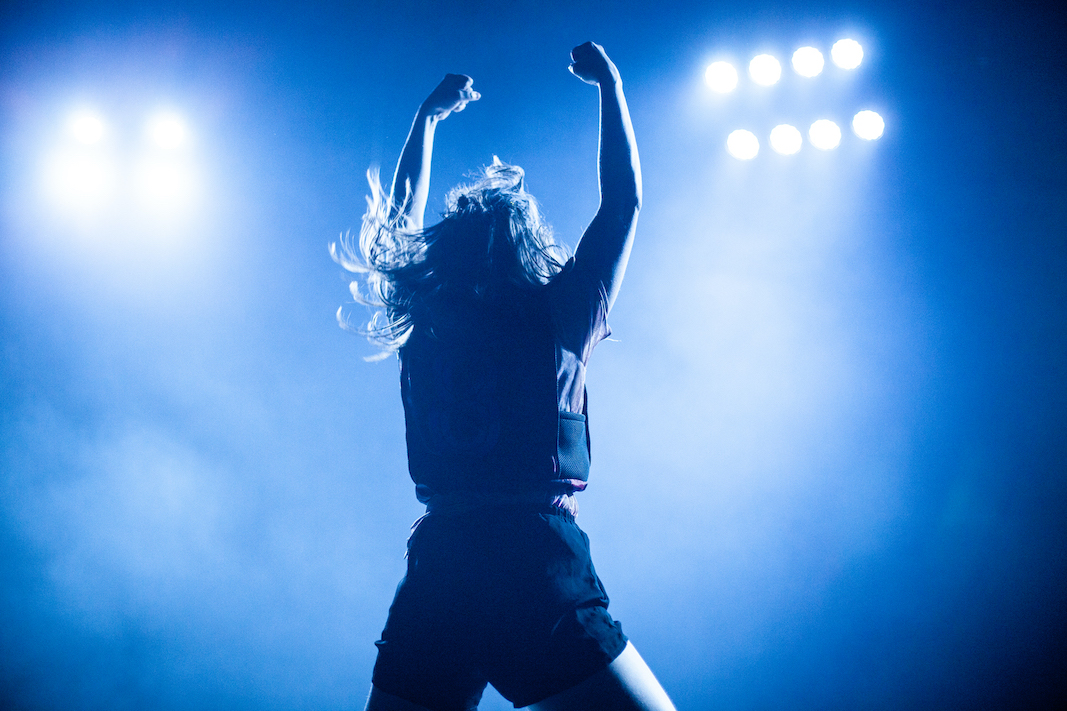Mucha Muchacha: A manifesto and a party
- Home
- Reviews 2020 - 2023
- Mucha Muchacha: A manifesto and a party

By Kaija Pepper
A whole lot of girl! That, roughly, is the translation of Mucha Muchacha, the sprawling and explosive flamenco-influenced contemporary dance show that headlined the Vancouver International Flamenco Festival on September 16. The 70-minute piece from Spain filled the stage at the Norman Rothstein Theatre with wave after wave of female gusto, mixing serious and sinuous woman-power with playful girlish nonsense.
The five dancers powering all this — Ana Botía, Marta Mármol, Belén Martí Lluch, Chiara Mordeglia, and Marina De Remedios — are from Mucha Muchacha company, which four of them co-direct. The fact that the choreography and the company share the same name suggests the work could be looked on as a sort of manifesto, stating something essential to who these women are, or aspire to be. Celso Giménez, the company’s sole male co-director, is credited with contributing to the creation, and male designers are among the team: this warm-hearted work is about building bridges, not burning them.

The creative process for Mucha Muchacha, which premiered in Madrid last year, began with research into the artists known as Las Sinsombrero (Women Without Hats), who were part of a group of avant-garde Spanish writers and artists known as the Generation of ’27. Members included now well-known men like Federico García Lorca, Salvador Dalí, and Luis Buñuel; the group’s women have been largely forgotten.
Mucha Muchacha doesn’t dwell on Las Sinsombrero, however, and poetry from Alejandra Pizarnik, an Argentinian born later, in 1936, is projected at the start. The opening lines, and the image they suggest, is welcoming, if unexpected: “I am a woman / and a comforting heat shelters me.” From there, the performers prepare for the workout to come by rubbing the toes of their ankle-height red boots in rosin, then launching thunderbolts: they stamp with flamenco style and authority, the sound resonating through the auditorium; they punch the air with a boxer’s oomph. And they shout and shout, like a sports team rallying forces for a hard game; indeed, at this point the women wear vests with their names and a number on the back. The fierce Maori haka is also very present in their moves.

There is great humour in the riff on Madonna’s Material Girl, which they sing themselves, as they do snippets from classical scores. One is Ravel’s Boléro, used for countless ballets, and turned upside down by the women’s raucously sincere rendition through both voice and movement. The only recorded music comes at the very end, when the names of female artists from around the world are projected.
Before that, in a final scene following a brief blackout, the quintet relax on an oversized white bed enclosed with sheer white netting. They loll about eating strawberries; drinking juice, possibly spiked with rum; and talking about such ordinary things as the dangers of sugar for a diabetic mom, their mothers’ unhappiness with certain aspects of aging, and their own physical exhaustion while performing Mucha Muchacha. It’s well-acted, as if we are listening in on a real pyjama party. But that naturalistic rambling quality also makes it a tad tedious.
The evening moves to a poignant close when the young women stand up on the bed to try out how their 80-year-old selves might one day dance the choreography that has left them exhausted: they go through their moves gently — with flow, not attack — whispering instead of shouting, remembering.
Vancouver’s 32nd annual Flamenco Festival continues to September 24 with Anastasiia Alexander and Kara Miranda. The festival’s producing company, Flamenco Rosario, appears with guests artist Albert Hernandez from Ballet Nacional de España.

